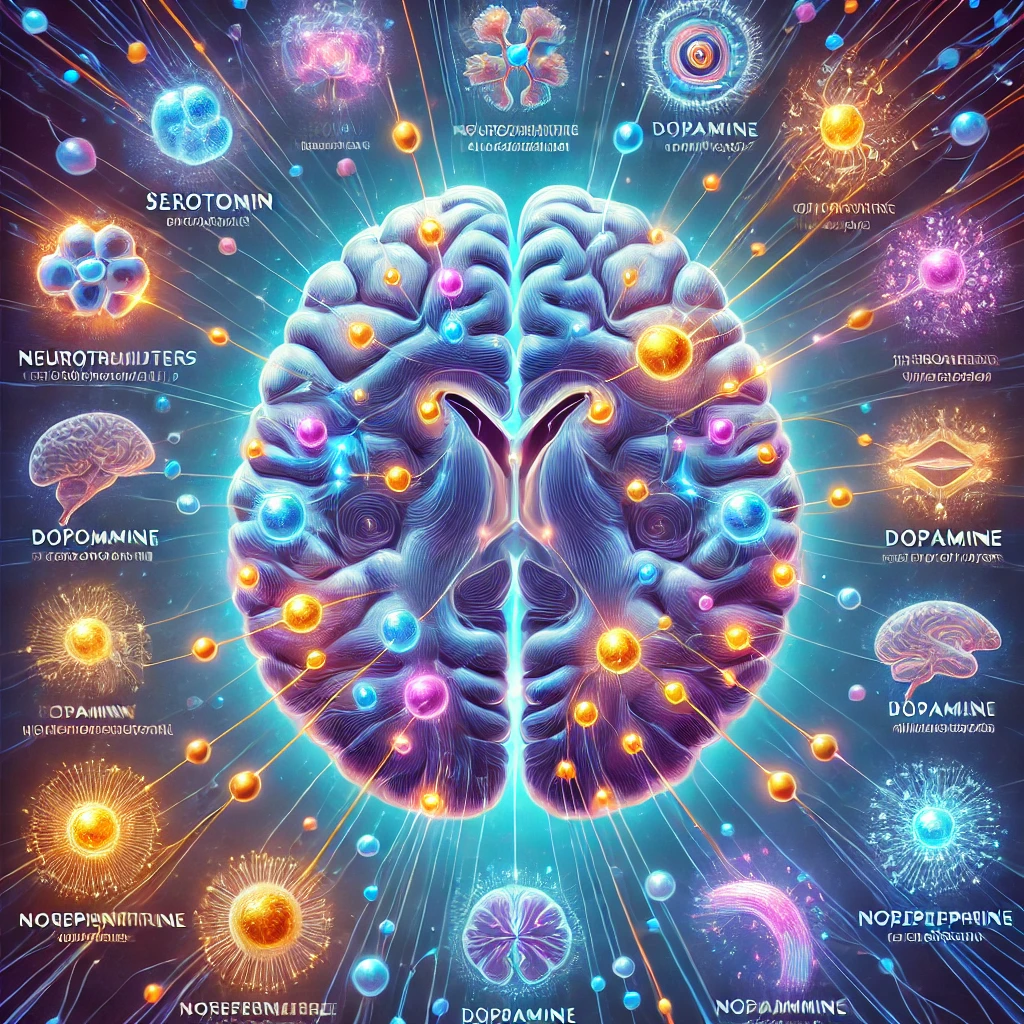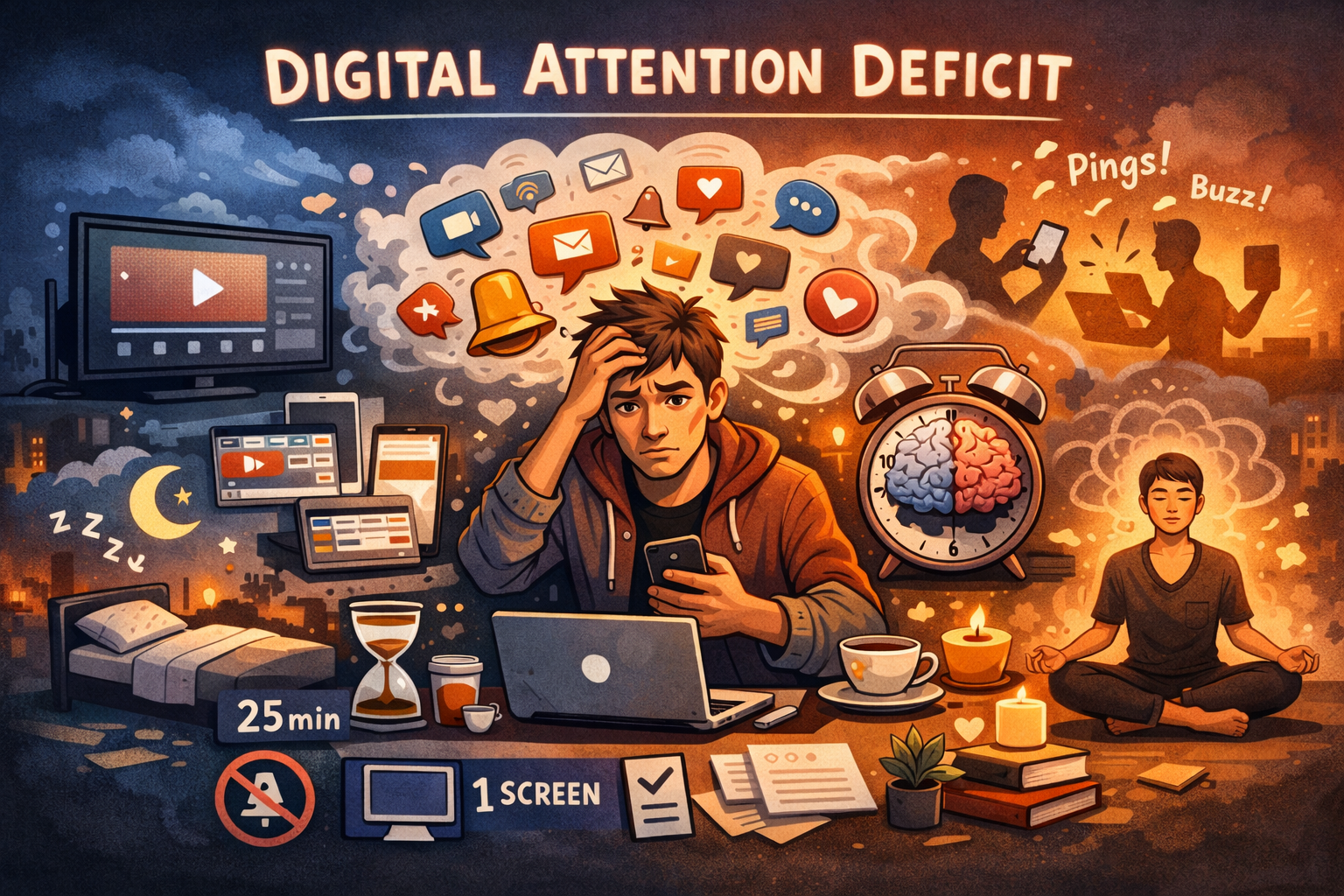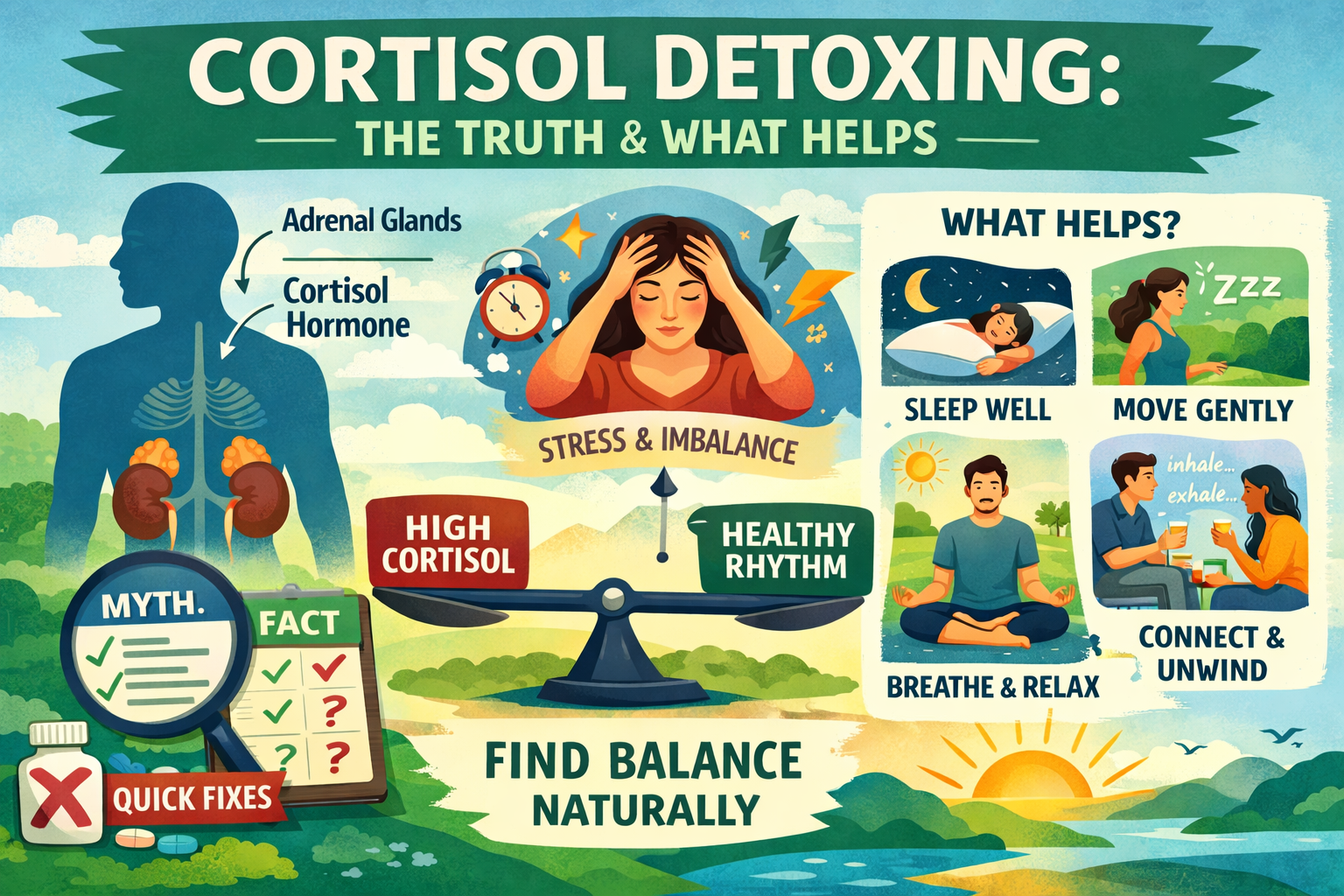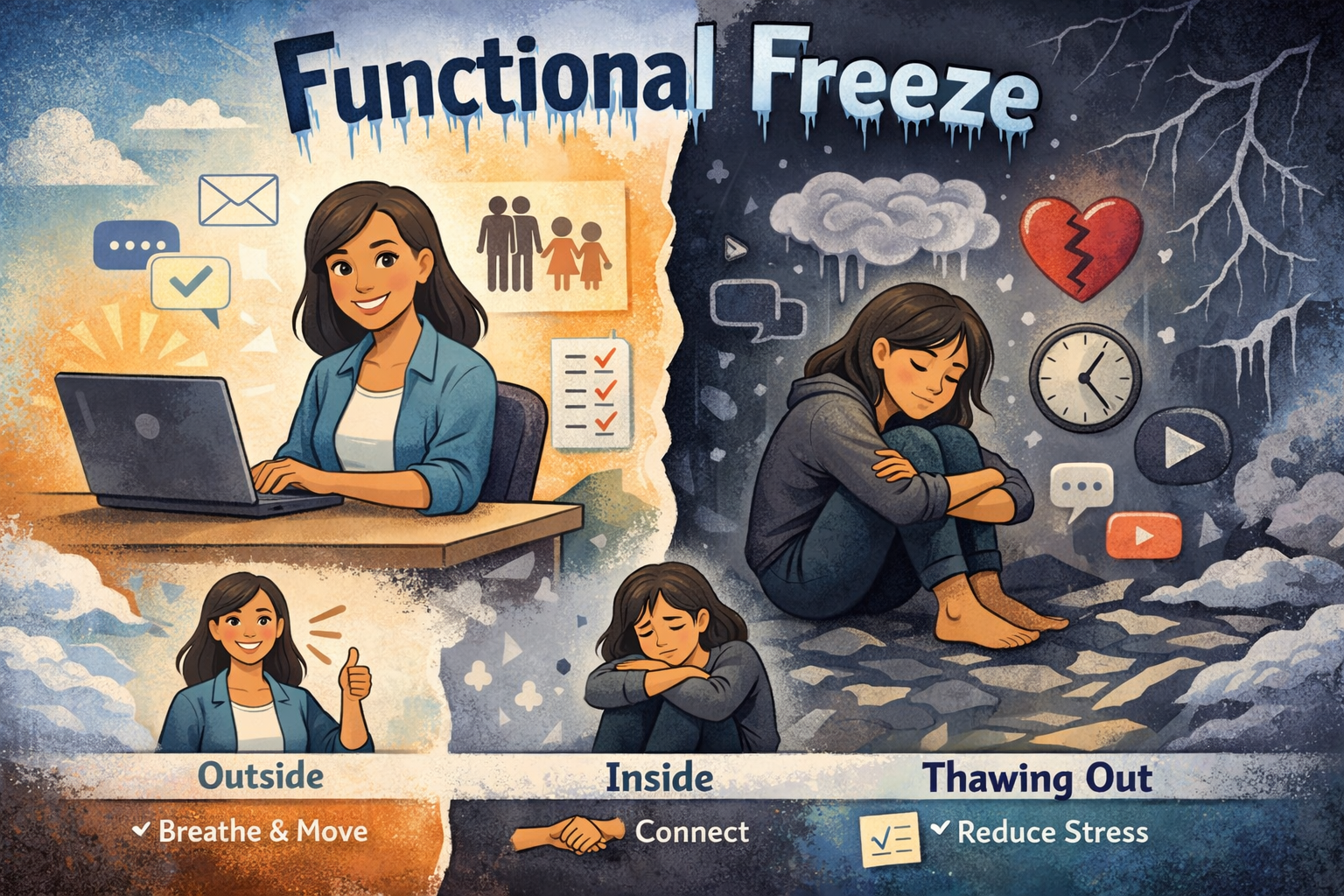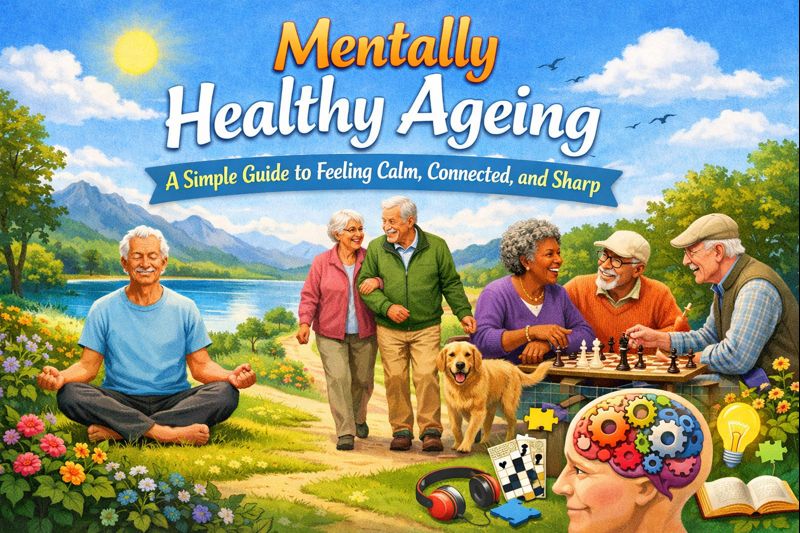Mental health and Wellness has been a topic of growing concern in recent decades. Depression, anxiety, and other mental disorders affect millions of people around the world. For years, many believed that these conditions were caused by a chemical imbalance in the brain—particularly a lack of serotonin, a neurotransmitter associated with happiness. This idea was popularized by pharmaceutical companies, leading to the widespread use of antidepressant medications like SSRIs (Selective Serotonin Reuptake Inhibitors). However, recent studies show that the chemical imbalance theory may not be as accurate as people were led to believe. In fact, many experts now believe that the world was misled about the true causes of mental health disorders.
What is the Chemical Imbalance Theory?
The chemical imbalance theory suggests that mental health conditions, particularly depression, result from an imbalance of certain chemicals in the brain. Specifically, it was believed that people with depression had lower levels of serotonin, the neurotransmitter in the brain. This theory led to the development and promotion of antidepressant medications designed to increase serotonin levels in the brain.
For decades, this theory was widely accepted. Psychiatrists continued to prescribe medications that targeted brain chemistry, and many patients found relief. However, the question remained: is depression really caused by a lack of serotonin in the brain?
Also Check :Discover Your Depression Level
How Pharmaceutical Companies Shaped the Narrative
Pharmaceutical companies played a key role in promoting the chemical imbalance theory. In the 1980s and 1990s, companies that produced SSRIs like Prozac and Zoloft launched massive marketing campaigns. These advertisements promoted the idea that mental health disorders could be easily treated by correcting a simple chemical imbalance. The message was clear: take this pill, and you’ll feel better.
This marketing was highly successful. SSRIs became some of the most commonly prescribed drugs in the world. Millions of people were convinced that their depression or anxiety was due to low serotonin levels, and taking medication seemed like the most effective solution.
However, the promotion of this idea by pharmaceutical companies may have oversimplified the true complexity of mental health disorders. The focus on chemical imbalances ignored other possible causes of mental illness, such as trauma, social factors, genetics, and environmental influences.
The Science Behind the Myth
Recent studies have cast doubt on the chemical imbalance theory. Research published in 2022 by British psychiatrist Dr. Joanna Moncrieff and her team reviewed decades of scientific evidence on serotonin and depression. They found little to no consistent evidence that depression is caused by low levels of serotonin. This challenges the foundation upon which the chemical imbalance theory—and the widespread use of SSRIs—was built.
Moncrieff’s study revealed that while SSRIs do alter serotonin levels in the brain, this doesn’t necessarily mean that a serotonin deficiency was the cause of depression in the first place. In other words, the relationship between serotonin and depression may be more complicated than previously thought.
The findings suggest that the chemical imbalance theory may have been an oversimplified explanation for complex mental health issues. As Dr. Moncrieff puts it, "there is no convincing evidence that depression is associated with, or caused by, lower serotonin concentrations."
Why the World Was Misled
The oversimplification of the chemical imbalance theory wasn’t just a mistake—it was a narrative shaped by powerful forces. Pharmaceutical companies had a financial interest in promoting this idea because it supported the use of their products. By focusing on the chemical aspect of mental health, they were able to convince millions of people that medication was the most effective treatment.
This isn’t to say that pharmaceutical companies acted entirely in bad faith. SSRIs do help many people manage their symptoms, and for some, they are a lifeline. But the narrative they created—the idea that mental illness is simply a matter of "chemical imbalance"—has been misleading.
Mental health disorders are complex and cannot be fully explained by brain chemistry alone. The focus on serotonin overshadowed the importance of other factors, such as trauma, social isolation, and economic stress, all of which play significant roles in mental health.
A New Look at Mental Health
Now that the chemical imbalance theory is being questioned, it’s time to take a more holistic approach to mental health. Instead of seeing depression and anxiety as purely chemical problems, we need to recognize that mental health is influenced by a range of factors—biological, psychological, and social.
1. The Role of Trauma and Environment
Many people experience mental health disorders as a result of traumatic events. Childhood abuse, loss of a loved one, financial hardship, or living in a toxic environment can all contribute to conditions like depression and anxiety. These experiences shape how we think, feel, and interact with the world. Therapy, support groups, and community interventions can play crucial roles in helping people heal from these emotional wounds.
2. The Importance of Lifestyle Changes
In addition to trauma, lifestyle factors also impact mental health. Regular physical exercise, a healthy diet, and sufficient sleep have all been shown to improve mood and reduce symptoms of depression. Social connections and support from family and friends are equally important. Focusing on these aspects can help people manage their mental health more effectively, with or without medication.
3. Psychotherapy and Cognitive Behavioral Therapy (CBT)
While medication can be helpful for some, many experts now recommend psychotherapy, particularly Cognitive Behavioral Therapy (CBT), as a first-line treatment for mental health disorders. CBT helps people understand and change negative thought patterns and behaviors that contribute to depression and anxiety. Studies have shown that therapy can be just as effective as medication, especially when combined with other treatments like lifestyle changes.
Moving Forward: A Balanced Approach
The chemical imbalance theory has dominated the conversation around mental health for years, but now we know that it doesn’t tell the whole story. It’s important to take a more balanced approach, recognizing that mental health is complex and influenced by many different factors. Medication can be a helpful tool, but it should not be seen as the only solution.
As we move beyond chemicals and look at mental health and wellness in a new light, we must focus on treating the whole person—not just their brain chemistry. This means addressing the psychological, social, and environmental factors that contribute to mental illness, and supporting people in their journey toward healing in more holistic ways.
Mental health is about much more than just chemicals; it’s about the human experience, and it’s time to approach it with the care and understanding it deserves.
Prioritize your well-being with a holistic healing center that focuses on your complete mind-body balance. Take the first step toward lasting mental wellness today!


